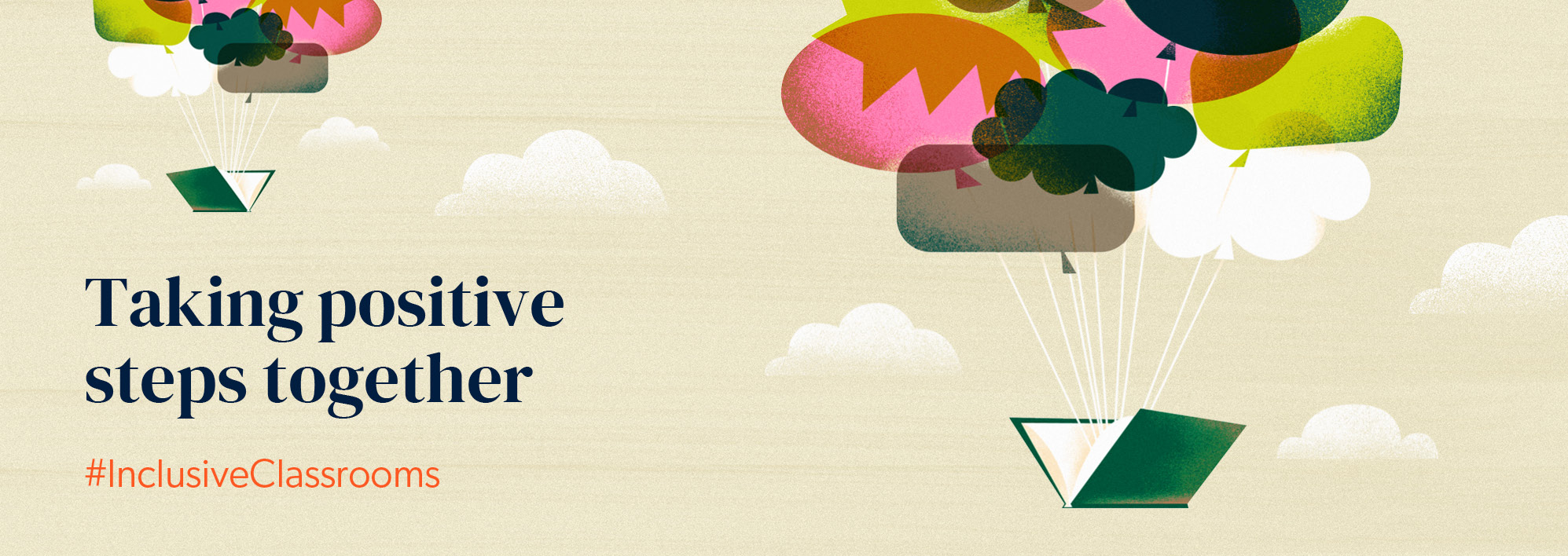The Religious Education classroom naturally lends itself to being an inclusive space. As head of department, I am always striving to ensure that our vision of “inspiring students to openly explore, enquire, express and evaluate ideas about beliefs, truth and meaning” is realised by them all.
The study of different religions, ethical theories and philosophical concepts enables pupils to develop spiritually, morally, socially and culturally, and also to demonstrate mutual respect and tolerance of those of different faiths and beliefs.
One of the initiatives I’m most proud of at my school is organising Inter Faith Week every November. Over the years the week has featured the following:
- A ‘Reflections Room’ displaying religious artefacts and teachings, a ‘Beliefs Board’ of quotations from staff expressing their faith, and other activities
- Meditation session run by RE student ambassadors
- Visit to a Buddhist vihara
- Theme for the week during tutor time
- Assemblies delivered by RE student ambassadors
- Slideshow of modern religious figures and teachings about peace and respect on plasma screens around the school
The highlight of the week is the Faiths Forum in which a panel of speakers from local communities are given an audience with groups of students from different year groups.
The selection of our speakers has always reflected our celebration of diversity and inclusiveness. We provide a platform for minority voices to be heard, such as a female rabbi representing Liberal Judaism, and an imam from the Ahmadiyya Muslim Community. Humanists have also been invited to participate.
The main format is a Q&A for which questions are collected in advance to allow for teachers and RE student ambassadors to select the most popular ones. In our first year we shortlisted 10 questions for a panel of five speakers, limiting responses to two minutes per person. Since then, we reduced the number of questions in the interest of time, as well as to allow for freer dialogue between the speakers. Pupils always ask fantastic questions! Here is an example from one year:

The forum is led by the student ambassadors who introduce the speakers and read out the questions. Pupils complete a worksheet as they listen.
For the last two years, due to the pandemic, leaders joined us virtually.
This year, they recorded a message focusing on the importance of the ‘Golden Rule’ in their respective faiths and the positive difference this can make in society. The videos were shared in RE lessons across year groups and provided opportunities for students to reflect and discuss their own versions of the ‘Golden Rule’. The videos can be viewed on YouTube by clicking on the following links:
Pupils always value the IFW experience.
“I thought that Inter Faith Week was really good because we got to learn a lot more about other religions which would really help us to understand them too. The part that stood out for me was how they answered a lot of deep and meaningful questions that people don’t always associate with RE, such as racism. I think it would be a great idea for other schools to get involved as it’s hugely impacted our perspective of religion.”
– Navneet, student
“I love Inter Faith Week because it raises awareness about different faiths and expands my understanding. Everyone learns from each other, and it is a safe space for students to ask questions, and learn and appreciate the religious diversity that we are blessed with.”
– Amelie, student
Inter Faith Week really helps both pupils and staff develop a greater understanding and appreciation of different faiths and worldviews, celebrates the religious and spiritual diversity within the school, and provides everyone an opportunity to explore and share their own beliefs.
It also provides quality learning in the curriculum and has been incorporated into units across key stages including Year 7 (What do religions teach?), Year 8 (Commitment), Year 9 (Ethics), and Year 13 (Pluralism).
Sharing our initiative especially through social media (check out #kngsinterfaith on Twitter) has inspired other schools to organise their own inter faith activities.
Tips that you may find useful when organising your own Inter Faith Week:
- Vet your speakers – consult other schools and use the internet to verify their credentials.
- Recruit RE student ambassadors if you haven’t already and utilise them in promoting Inter Faith Week in assemblies and leading the activities. Diverse representation here is important.
- Publicise in your school newsletter and website so that parents and others can also see what’s happening.
- Share what you are doing through social media – for example, send a press release to local news groups and start a hashtag that is unique to your school. Tag @IFWeek and use the hashtag #InterFaithWeek in any tweets.
- Get other staff involved – many colleagues are very happy to share their faith and worldviews, which can be discussed during tutor time and lessons.
Greater inclusiveness in the curriculum through events like Inter Faith Week have a powerful and enduring impact. I would highly recommend it!
Waqar Ahmad Ahmedi is Head of Religious Studies and an author of Religious Studies textbooks and revision guides, including student books and a revision guide for OUP’s GCSE Religious Studies for Edexcel series. He also serves on the executive committee of the National Association of Teachers of Religious Education and is part of Birmingham SACRE, representing the Ahmadiyya Muslim Association. He tweets @WaqarAhmedi.




